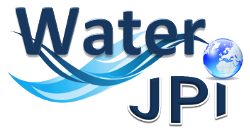URBANWAT
Project Coordinator

Carlos Ayora Ibañez: cayora1@gmail.com
Institution: CSIC, Spanish Research Council
Country: Spain
Abstract
The aims of the research presented in this pre-proposal is to propose an improvement of tools and criteria for groundwater management in urban areas to ensure the sustainability of urban water resources and define their potential uses, from an integral approach. In this way, it is committed to the circular economy of water, trying to make the hydrological cycle circular, efficient and sustainable, thereby improving quantitative and qualitative aspects. The research will involve a multidisciplinary approach including the investigation of the natural state of the hydrological cycle, identification of pollutants (general chemistry, pollutants of emerging concern (CECs) and microbiology studies) and their risks developing innovative technologies and methodologies. This research will focus in Barcelona city. Furthermore, we will make use of the full-scale testing and demonstration facility called ‘WaterStreet’ at TUDelft. The results will provide novel, cost-efficient technologies for urban groundwater management, with beneficial environmental, economic and societal effects, for the European Union (EU) as a whole are expected. In addition, the focus on emerging contaminants and their transformation compounds and the microbiological studies can be expected to provide additional valuable knowledge required to help assess the risks associated with groundwater human use from both environmental and human health perspectives. On the other hand, URBANWAT propose to use novel approaches based on liquid chromatography high resolution mass spectrometry (HLC-RMS) approaches to identify differences in degradation in different anoxic conditions using CECs as indicators of contamination and their transformation products (TPs) as indicators of degradability, the use of selected infrastructures to analyse fate and transport of selected contaminant in the soil-plant continuum as a remediation system, the use of encapsulated DNA nanoparticles to research the movement of the contaminants and the application of viral metagenomics to explore the presence of new and emergent viruses in groundwater samples.
Funder of the project:
Institutions: PRCI-CE - Projets de recherche collaborative - International dans un cadre Commission Européenne
